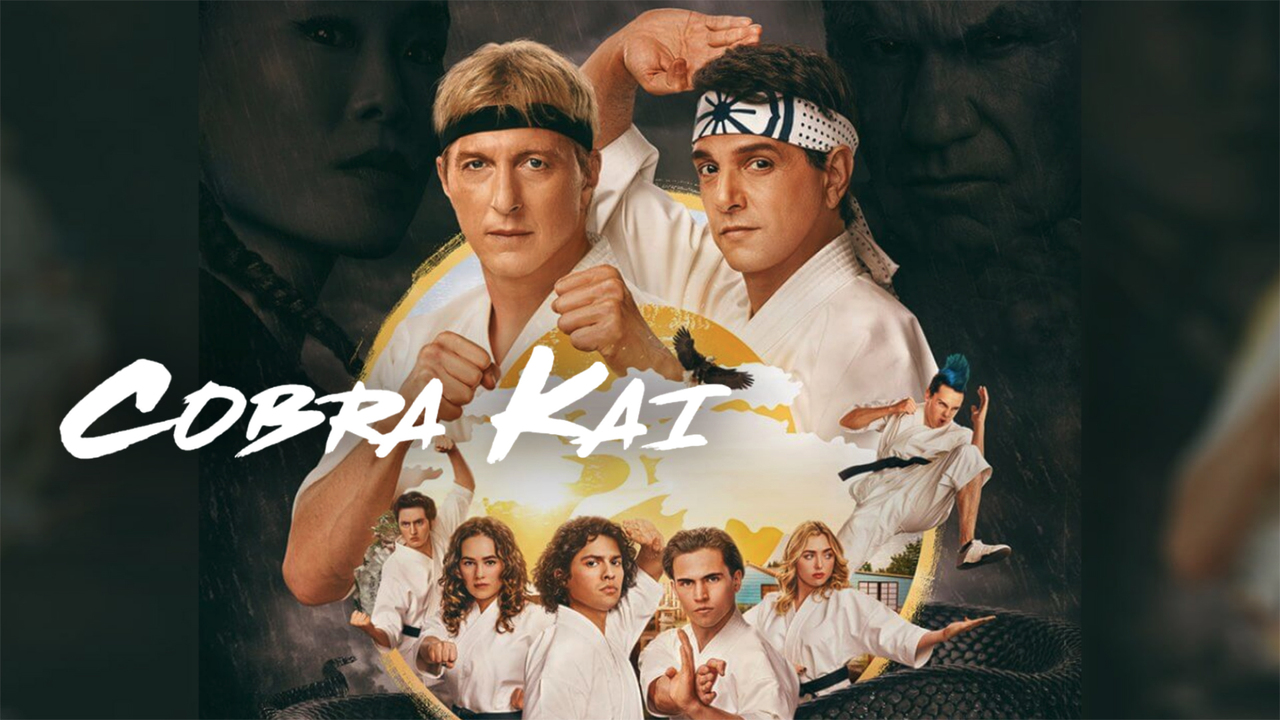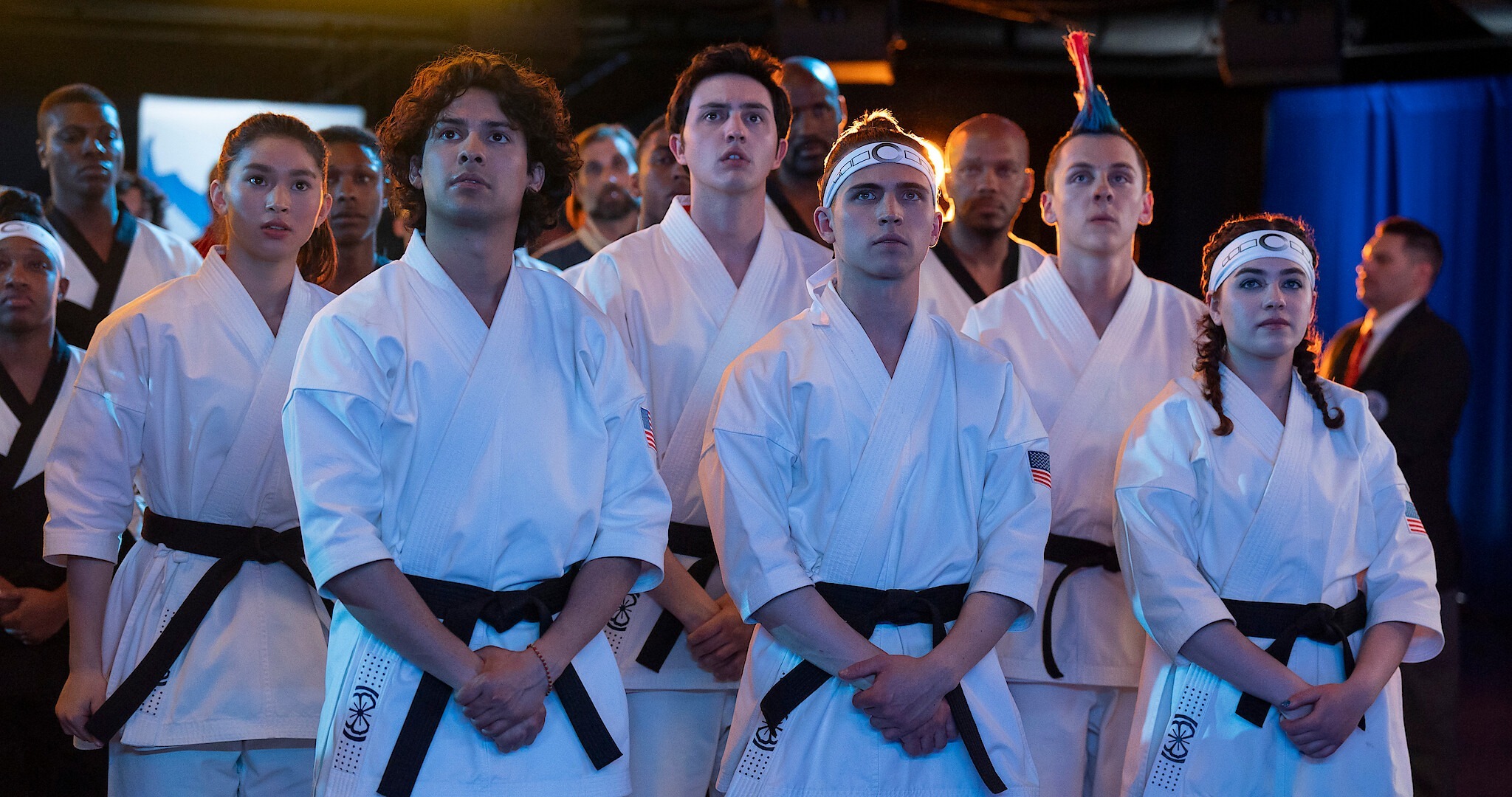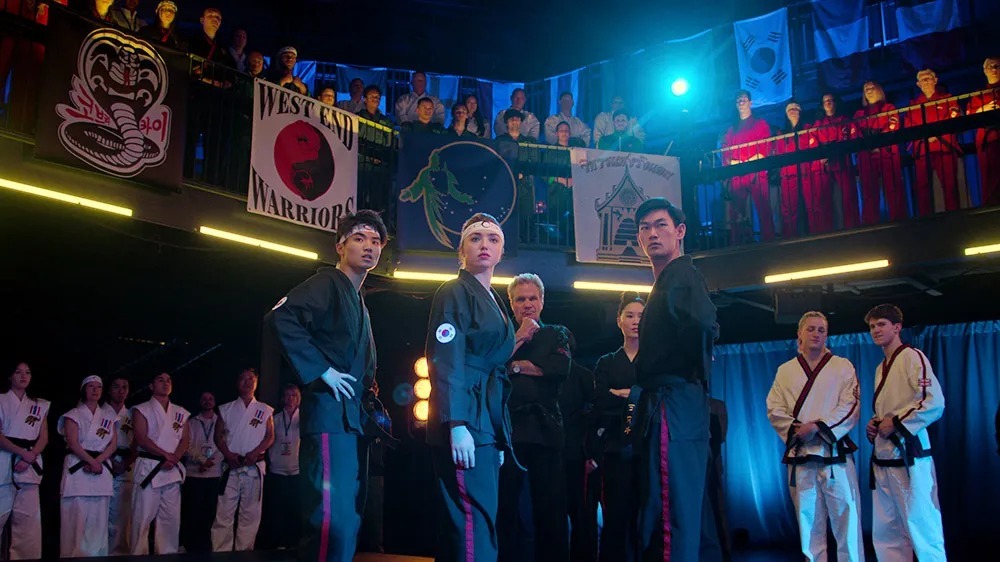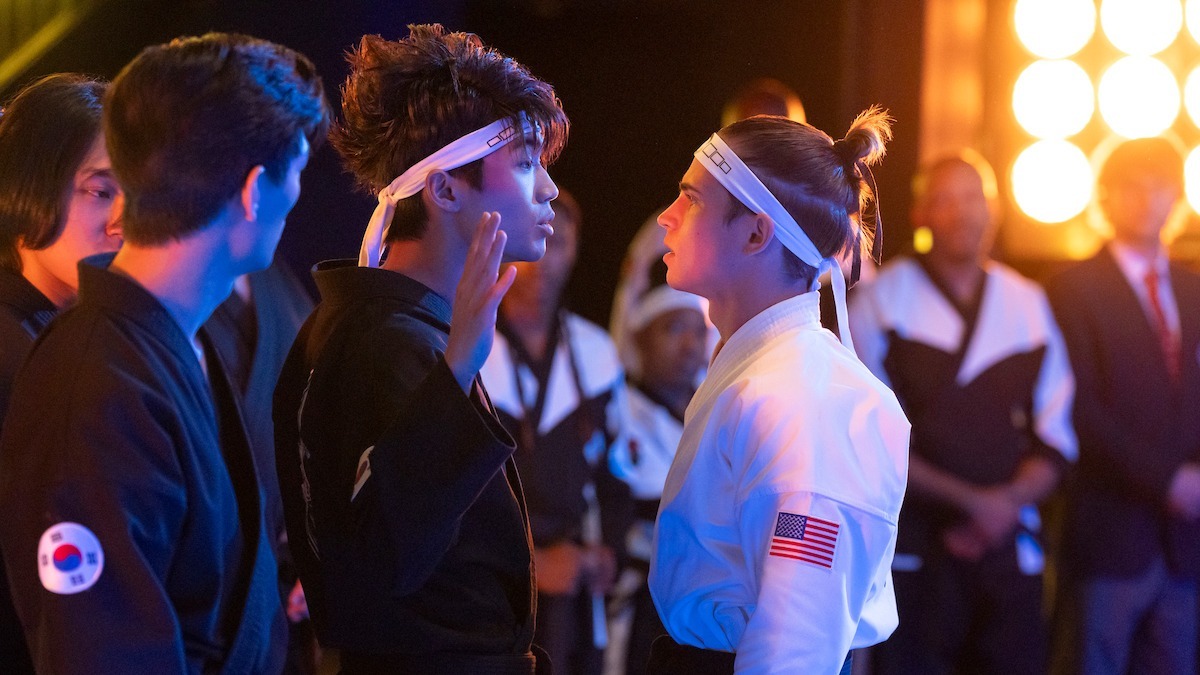Cobra Kai

Cobra Kai is an American martial arts comedy-drama television series created by Josh Heald, Jon Hurwitz, and Hayden Schlossberg. Serving as a sequel to the 1984 classic The Karate Kid film series created by Robert Mark Kamen, Cobra Kai revisits the iconic rivalry between Johnny Lawrence and Daniel LaRusso. The show not only brings back familiar characters but also introduces fresh perspectives on life, growth, and redemption, making it a compelling watch for both long-time fans and new viewers.
The series begins by focusing on Johnny Lawrence (William Zabka), who, years after his high school glory days as the bully from Cobra Kai, is now a down-and-out, struggling adult. Johnny’s life is a far cry from his youth, as he grapples with personal failures, a strained relationship with his son, and the sense that his best days are behind him. His decision to reopen the Cobra Kai dojo sparks the revival of his old rivalry with Daniel LaRusso (Ralph Macchio), who, despite being successful in his career, has struggles of his own. This setup sets the stage for a series that explores themes of redemption, personal growth, and the cyclical nature of life.
One of the strengths of Cobra Kai is its ability to present both Johnny and Daniel as complex characters, moving beyond their initial roles as simple hero and villain. Johnny, in particular, undergoes significant character development, as viewers witness his attempts to teach a new generation of students the martial arts philosophy he once embraced. Through his mentorship of Miguel (Xolo Maridueña), a troubled teen, Johnny begins to rediscover his purpose and attempt to reconcile with his past mistakes. On the other hand, Daniel’s life, although outwardly successful, is shown to have its own flaws, particularly his struggle to balance his family life with his former glory and his complicated relationship with Johnny.
The show also introduces a fresh new generation of characters, including Johnny’s students and Daniel’s children, who add depth to the storyline. Miguel’s journey, in particular, is central to the plot, as he starts off as an awkward and bullied teenager but grows into a capable martial artist, learning life lessons along the way. These new characters provide a mirror to the original Karate Kid film, showing how the themes of bullying, resilience, and mentorship transcend time and generations.

Another significant theme in Cobra Kai is the exploration of moral ambiguity. The show challenges the notion of “good guys” and “bad guys,” making the audience question the motivations and actions of its central characters. Johnny’s attempt to reinvigorate the Cobra Kai dojo with his own interpretation of “karate” is often at odds with his past and the toxic environment that the dojo represented. Meanwhile, Daniel, who once was the underdog, now struggles with the very notion of being a “hero,” showing that life’s challenges are not easily black-and-white.

In addition to the deep emotional storylines, Cobra Kai excels in martial arts action and humor. The show blends intense fight scenes with moments of lightheartedness and nostalgia. The series expertly incorporates references to the original Karate Kid films, offering plenty of callbacks for fans while still maintaining its own identity. The humor is often sharp and well-timed, giving the show a perfect balance of drama and comedy that keeps viewers engaged throughout.

In conclusion, Cobra Kai is a brilliant continuation of The Karate Kid legacy, bringing new life to old characters while introducing fresh faces that help broaden its appeal. With its thoughtful exploration of redemption, personal growth, and the impact of past actions, the series transcends its martial arts roots to become a meaningful story about life and the choices we make. Whether you’re a fan of the original film or a newcomer to the series, Cobra Kai is a compelling watch that proves it’s never too late for a second chance.











